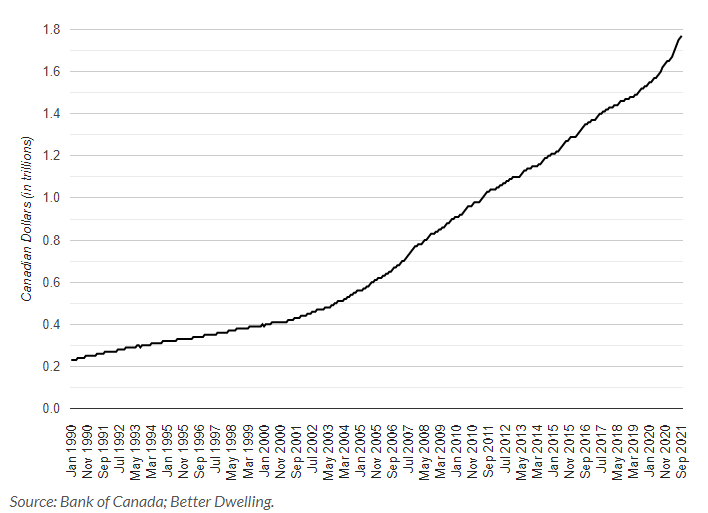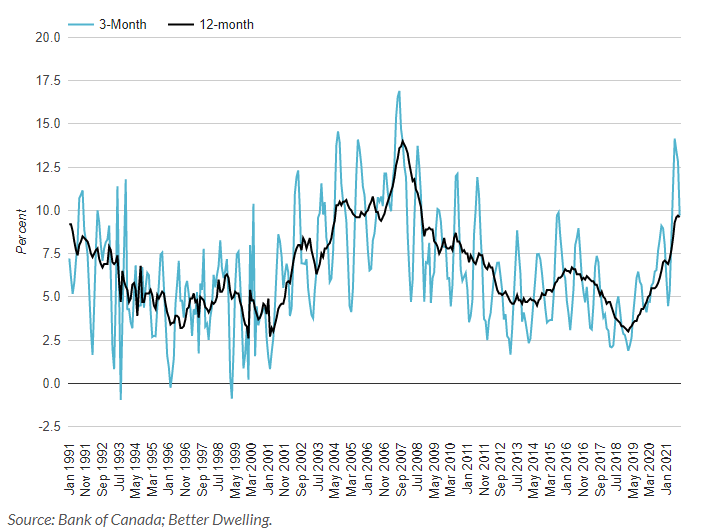Canadian Mortgage Debt Hits $1.77 Trillion
Canadian mortgage debt reached a new record high and did so at one of the fastest rates in history. Mortgage debt for housing hit $1.77 trillion in September, up 0.7% ($11.5 billion) from a month before. The balance is 9.6% ($155 billion) higher compared to the same month last year. Only August’s annualized growth showed a larger dollar volume increase in history.
Canadian Residential Mortgage Debt
The outstanding balance of Canadian residential mortgage debt held by institutions.

Mortgage Growth Is Just Below The 13-Year Record High
The annual rate of growth is one of the fastest in history, as mentioned above. It was just below the rate in August, which had been the largest number since 2008. Growth in September was a hair smaller but still very large. That said, the tiny downtick might have marked peak growth this credit cycle.
Canadian Residential Mortgage Credit Growth
The 12-month and 3-month (annualized) rate of growth for Canadian mortgage credit.

Canadian Mortgage Credit Might Be Past This Cycle’s Peak
Diving into the data we can see the downtick for annual growth is the result of a bigger slowdown. The 3-month annualized rate of growth fell to 9.7% in September. It was a sharp drop from the peak of 14.2% hit in June, the highest level in over a decade. This implies short term growth is rapidly decelerating.
Analysts often use shorter annualized periods to benchmark growth rates. The most recent 3-months gives a fresher perspective than the past 12-months can. It’s not as foolproof, but all trends start with the most recent data’s move. If this trend sticks, the 12-month trend will chase the shorter-term move.
Mortgage credit growth is slowing and there are some signs we’re past this cycle’s peak. It’s still a very high rate of growth, but rising interest rates are likely to drag. Failing a massive boom of deep-pocketed investors, we should see a little normalization. This might be one reason Canadian investors are pouring large amounts of cash into US securities.
Courtesy: betterdwelling.com


Leave A Comment